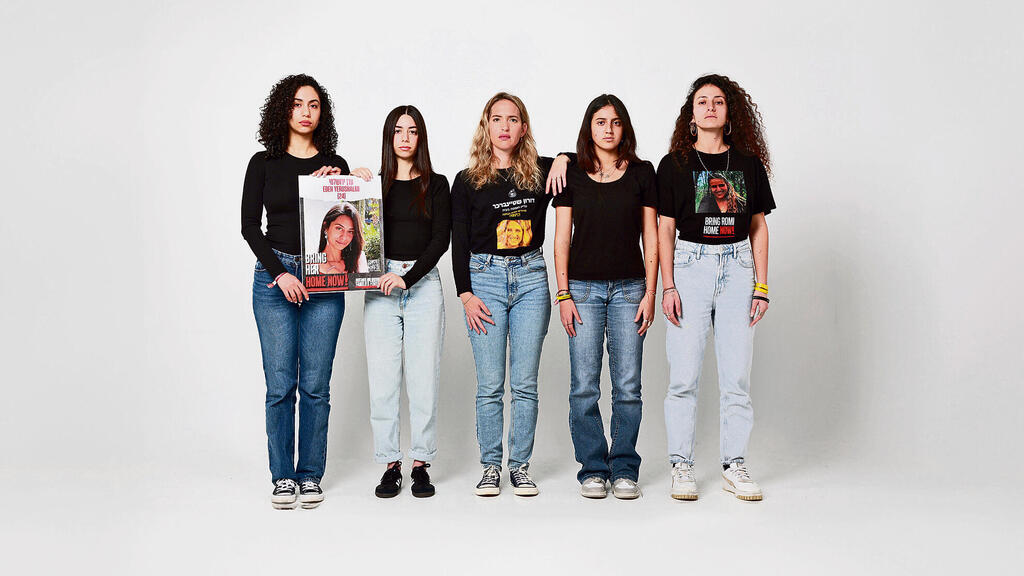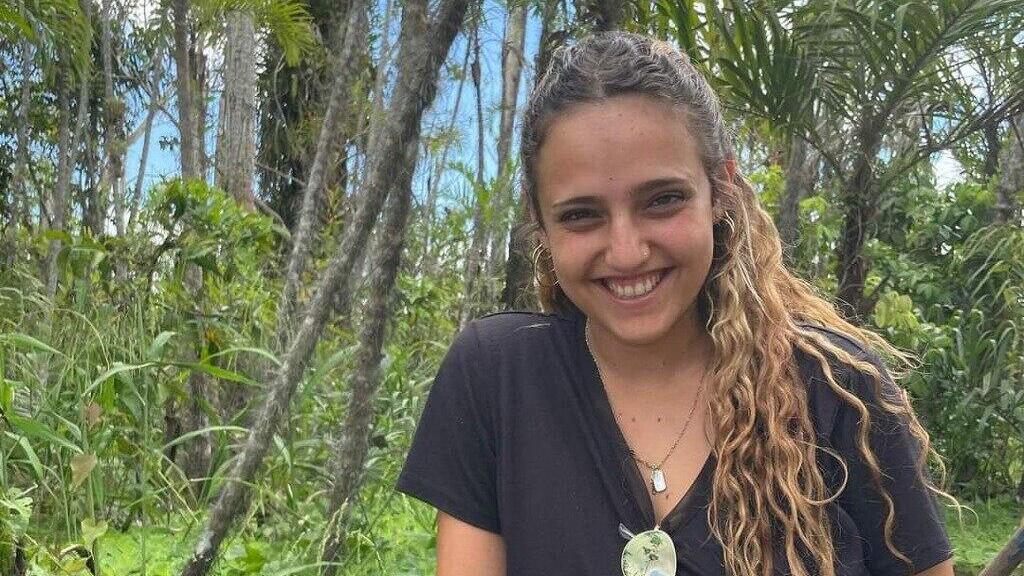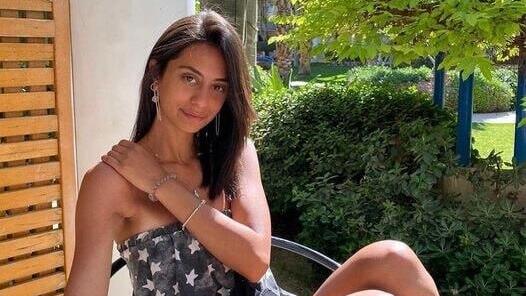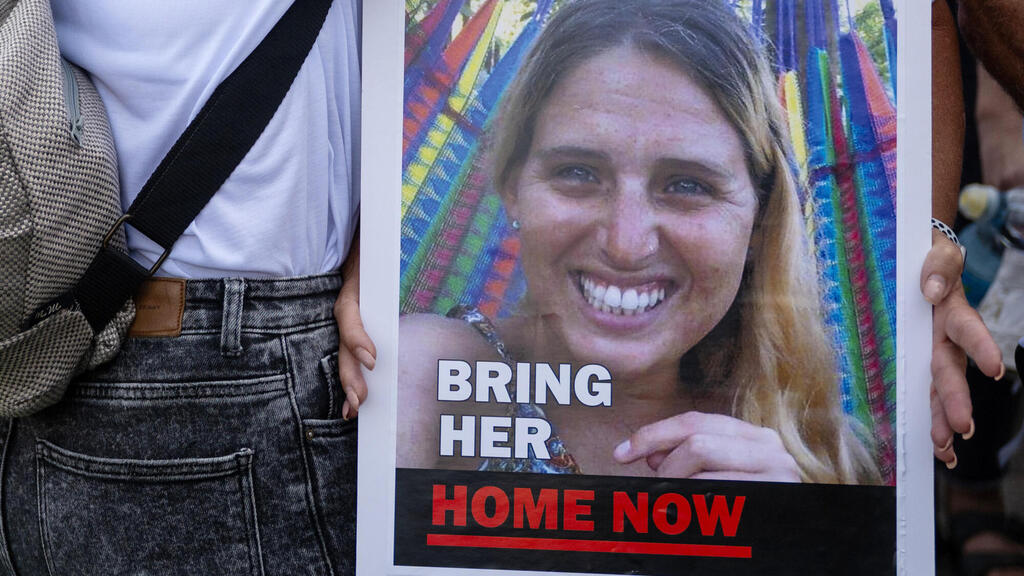Getting your Trinity Audio player ready...
When Romi Gonen was 12 years old, one of the kids at her school stuck chewing gum in her hair. Her older sister, Yarden, was 19 at the time. "She came home crying, we tried to remove it from her hair for hours, with all sorts of methods. At some point, I told her, 'Listen, there's no way to get it out,' and she got so frustrated she decided to cut her hair. I lost it, went to her school, asked who did it, caught him, and told him, 'This is the last time you touch my sister.'"
More stories:
Shachaf is another brother in the Gonen family. He was born after Yardena and before Romi, followed by 18-year-old Daria, and Adam, the youngest in the family. "I always felt that our relationship was somewhere between a mother to a big sister to a good friend. When she's confused, she'll always call me or mom, and at every festival and party, even in South America when she was with Gaia (Gaia Halperin, Romi's best friend who was murdered at the Nova Music Festival), she would call me.”
4 View gallery


May and Shani Yerushalmi, Yamit Ashkenazi, Daria and Yarden Gonen
(Photo: Dana Kopel)
"Even on that Saturday, when she called, I had a moment where I felt like 'Well, it's probably not important, I don't have time for her nonsense,' but then I realized it's Saturday and 6:30 a.m., and I realized it was something unusual. I'm used to being protective of her, and at those moments, I felt so far away from her."
Yamit Ashkenazi, the sister of Doron Steinbrecher, was confined to her home in Kfar Aza on October 7, not far from Doron who lived in a neighborhood close by. "Every morning, Doron asked about the kids, to make sure they were okay. I felt torn between the desire to run and get her and the desire to keep my kids safe."
This feeling of frustration also resonates with Shani Yerushalmi, the older sister of Eden Yerushalmi, who was kidnapped from the music festival: "She's my little sister. My job is to take care of her. I protected her since we were kids. On that Saturday, we were on the line with her for a few hours, and the lack of news was so hard for me. Even now, I'm constantly thinking about her."
'We're allowed to laugh'
There's humor too. The kind only they can understand. "This between the families, our dark humor, for example now when we were photographed for the article," Yamit explains, "I could say ‘Hamas also put the blonde one in the middle for their photo,' and they'd all laugh and understand, and I can do that." They're also the only ones who can understand what it's like to be a "sister of a hostage."
"There's no pride in being the sister of Doron the hostage," she added. "It's a situation in which you have no identity of your own, you're only a sister now. I put aside the fact that I myself was locked up with my little kids for 21 hours. Until she returns, I probably won't really leave the protected room. But I'm proud to be Doron's sister. The strength to go on comes from the hope that she might see this, that she'll at least know we're alive, that we're fighting for her.
"I feel much the same," says Yarden, "I'm just proud to be her sister, she's worth this war. No matter how tired I am, it's irrelevant. But I'm sick of being seen as the sister of a hostage. I didn't choose to be known like this."
May is Eden's little sister, a not-so-simple position to come to terms with. "In my first interview, I told myself 'Wow, Eden is going to regret this.' Why do I need to tell people she does Pilates so they see her as a person and not a poster? On the families' first mission to Europe, I arrived in Paris, and it was the first time I held a press conference, and in English too. I was under heavy pressure, but I took a breath and got on stage, because I'm fighting and will fight for her in every way I can."
Daria Gonen also takes the spot of the younger sister. "Until now, I didn't need to protect her, she was doing it for me," she says. "When I went to parties, she was so worried she wouldn’t fall asleep. Now it's the opposite, she went to a party and wasn't safe there. So yes, I'm at war. If families didn't do what they're doing, it’s possible we wouldn’t have had the previous hostage deal. I have no doubt Romi is alive, and that gives me the strength to continue fighting."
"It's a war of consciousness to keep the hostages on the agenda,” the Yerushalmi sisters explain. “The world doesn’t care. Even in Israel, there are people who don't feel it the way we do. People go to parties, and continue with their lives. Don't forget that if you were in our place, you'd ask others to keep fighting. We fly on missions and see smiling heading to a vacation, and it's hard."
It feels like we've gotten used to it
There's a feeling that Israelis have become accustomed to this situation, as if the fact that there are 19 women in captivity and another 115 additional hostages isn’t enough, and we need to be shocked anew each time - to scream louder, to convince ourselves on how important their lives are, how real the danger in captivity is every day. For women, the topic of the possibility of sexual assaults, and even pregnancy didn’t come late.
Yamit was the first to say the word that had been avoided until then - rape. During the press conference of the hostages’ families, over a hundred days ago, Yamit stood without a prepared speech and shouted from the podium: "I don't know what my sister is going through, and what filthy hands are touching her. It's been 54 days, maybe my sister is being raped? Maybe my sister was murdered?"
"It's tough, but we need to show people the reality, and what can happen," May explains. Yamit agrees with her, but stipulates, "We need to tell the truth, but the wording is critical. All the talk about abortions and pregnancy, I struggle with that. It's a fear that's very real, I really want to hope they aren’t touching her, but we realize that it's something that can happen."
"But does it matter?" Yarden Gonen asks, "They try to understand what I know, what I heard, or what I’ve been told, because that's what places more pressure. We don't need to have factual information that someone touched one of them to understand how serious the situation is.”
“Is it not enough that Mia Schem says that the terrorist looked at her all of the time and made her feel like he was raping her with his eyes, do we need more than that? People need to use their heads. When a woman is held in a room with a Hamas terrorist, anything can happen, and the same goes for men. Does any of them feel safe? They live in constant fear."
The reality in which the hostages are right now is incomprehensible, and according to Yamit, even the word "hostage" is not enough to describe it. "They burst into Doron’s home from the window, and pulled her out in her pajamas. After so many days, we need a more significant word. What’s a hostage? There's no word that can describe this helplessness, this uncertainty." "It’s a void," Yarden says.





